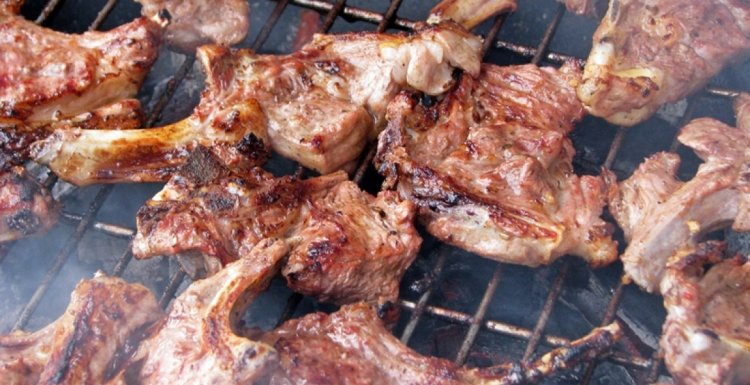Cost Of Meat To Increase As Govt Issues Warning Ahead of Festivities
Traders associated the high prices with the just concluded drought where a huge number of livestock were killed by the ravaging drought, with the few remaining being sold at high prices.

Meat lovers in Nairobi and Kajiado Counties risk paying more to enjoy the Christmas and New Year festivities amidst an increase in livestock prices compared to previous seasons where goats, sheep and cattle were sold at fair prices.
A report by Citizen Digital highlighted spot checks during Ilbissil Market Day on Friday, December 22 indicating the highest price of livestock as goats and sheep now sell at Ksh20,000 from between Ksh7,000 to Ksh10,000.
Traders associated the high prices with the just concluded drought where a huge number of livestock were killed by the ravaging drought, with the few remaining being sold at high prices.
Some buyers who had rushed to the market to buy goats for Christmas hinted at being forced to take meat off their menus over the high prices.

President William Ruto flanked by a host of leaders including Deputy President Rigathi Gachagua inspects a goat during the annual Kimalel Goat Auction and Cultural Festival in Baringo County on Thursday, December 14, 2023. /PCS
"Those that were sold at Ksh3,000 are now selling at Ksh10,000. It is that way because they have become much less and that is why the buyers are complaining," a trader lamented
"Some goats are now selling at Ksh20,000 and a while back they were selling at Ksh10,000," a buyer weighed in.
Another buyer added that the only probable option was to buy soda and bread as meat from the butchery has become expensive.
Meanwhile, the Ministry of Health (MoH) advised members of the public against consuming uninspected animal meat during the festivities.
According to an advisory statement by Health Principal Secretary (PS) Muthoni Muriuki on Friday, with the festivities, there is a high risk of individuals slaughtering animals and birds that have not been inspected.
The Ministry’s reports and studies reveal that consumption of carcasses is likely to cause infections in humans when consumed, more so viruses, bacteria and poison. Common diseases transmitted from animals to humans include Tuberculosis (TB) and zoonotic diseases infecting humans.
Examples of zoonotic diseases likely to be transmitted from animals to humans include rabies and anthrax, with several cases reported of individuals consuming animals that have died as a result of anthrax leading to hospital admissions, with some cases resulting in deaths.
Consumption of dead animals also results in poisoning that presents with diarrhoea, headaches, vomiting and stomach cramps resulting in deaths.
Muthoni added that food should be handled properly, stating that “...cook and serve when hot. Any leftovers must be stored safely and heated well before eating,” adding that cooking food kills bacteria.
Further, all Kenyans hosting a ceremony have been directed to ensure adequate provision of sanitary facilities, including handwashing points and latrines.
"The Ministry is fully aware of many ceremonies that communities undertake during this festive season such as weddings, and circumcision among others. It should be noted that such ceremonies and gatherings negatively affect our health especially if public health measures are not fully observed.
"Anyone hosting a ceremony should ensure adequate provision of sanitary facilities including handwashing points and latrines. Observe proper hygiene when handling food; cook and serve when still hot," read the advisory in part.
Kenyans were also encouraged to properly store leftovers to prevent them from going bad and posing health risks to family members.
Whereas several Kenyans spend most of their free time during festivity season in entertainment joints drinking alcohol, the Ministry has warned against drinking illicit alcohol.
“In case you get sick after eating or drinking, kindly seek immediate medical help in the nearest health facility,” added the ministry.

Ambulances from Emergency Plus Services. /FILE
Patients on long-term drugs like HIV, TB, and diabetes have also been asked to ensure they have enough stock to last them during the festive season.
While the festivities come with lots of merry, Kenyans have been warned against unprotected sex contributing to sexually transmitted diseases like HIV, chlamydia, gonorrhoea and syphilis.
Should Kenyans have any concerns, they were encouraged to reach out to the Ministry through emergency helplines: 719, 0729471414 or 0732353535.

 admin
admin 




